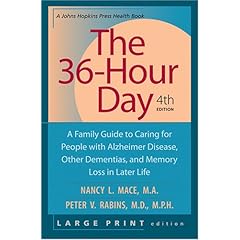The report from the institute, an arm of the National Academy of Sciences, said:
- There aren’t enough specialists in geriatric medicine.
- Insufficient training is available.
- The specialists that do exist are underpaid.
- Medicare fails to provide for team care that many elderly patients need.
Health care system not ready for aging boomers
WASHINGTON - Millions of baby boomers are about to enter a health care system for seniors that not only isn’t ready for them, but may even discourage them from getting quality care.
“We face an impending crisis as the growing number of older patients, who are living longer with more complex health needs, increasingly outpaces the number of health care providers with the knowledge and skills to care for them capably,” said John W. Rowe, professor of health policy and management at Columbia University.
Rowe headed an Institute of Medicine committee that released a report Monday on the health care outlook for the 78 million baby boomers about to begin turning 65.
The report from the institute, an arm of the National Academy of Sciences, said:
# There aren’t enough specialists in geriatric medicine.
# Insufficient training is available.
# The specialists that do exist are underpaid.
# Medicare fails to provide for team care that many elderly patients need.
The study said Medicare may even hinder seniors from getting the best care because of its low reimbursement rates, a focus on treating short-term health problems rather than managing chronic conditions and lack of coverage for preventive services or for health care providers’ time spent collaborating with a patient’s other providers.
The American Medical Association responded that seniors’ access to Medicare in coming years “is threatened by looming Medicare physician payment cuts.”
“This July, the government will begin steep cuts in Medicare physician payments, and 60 percent of physicians say this cut will force them to limit the number of new Medicare patients they can treat,” the AMA said in a statement.
AARP, the organization for older Americans, said the report highlights the growing need for immediate action to improve and strengthen the health care and long-term care work force.
“We know the problem, and we know how to begin to fix it,” said AARP President-Elect Jennie Chin Hansen.
The group said it is endorsing a bill by Sens. Senators Barbara Boxer, D-Calif. and Susan Collins, R-Maine, intended to steer caregivers towards geriatric and long-term care roles, and create an advisory panel to analyze this critical sector and make recommendations to tackle its changing needs.
The report found there are about 7,100 doctors certified in geriatrics in the United States, one per every 2,500 older Americans.
Turnover among nurse aides averages 71 percent annually, and up to 90 percent of home health aides leave their jobs within the first two years, the report said.
Geriatric care training
But while today’s elderly tend to be healthier and live longer than previous generations, people over 65 to have more complex conditions and health care needs than younger folks.
The report urged that all health care workers be trained in basic geriatric care and that schools increase training in the treatment of older patients.
The federally required minimum number of hours of training for direct-care workers should be raised from 75 to at least 120, the report said, noting that more training is required for dog groomers and manicurists than direct-care workers in many parts of the country.
And it said pay for geriatric specialists, doctors, nurses and care workers needs to be increased.
A doctor specializing in elderly care earned $163,000 on average in 2005 compared with $175,000 for a general internist, even though the geriatric specialist required more training.
The report also urged training for family members and other informal caregivers who assist the elderly.
The study was sponsored by the John A. Hartford Foundation, Atlantic Philanthropies, Josiah Macy Jr. Foundation, Robert Wood Johnson Foundation, Retirement Research Foundation, California Endowment, Archstone Foundation, AARP, Fan Fox and Leslie R. Samuels Foundation and Commonwealth Fund.
The National Academy of Sciences is an independent organization chartered by Congress to advise the government on scientific matters.

The 36-Hour Day: A Family Guide to Caring for People with Alzheimer Disease and Memory Loss in Later Life